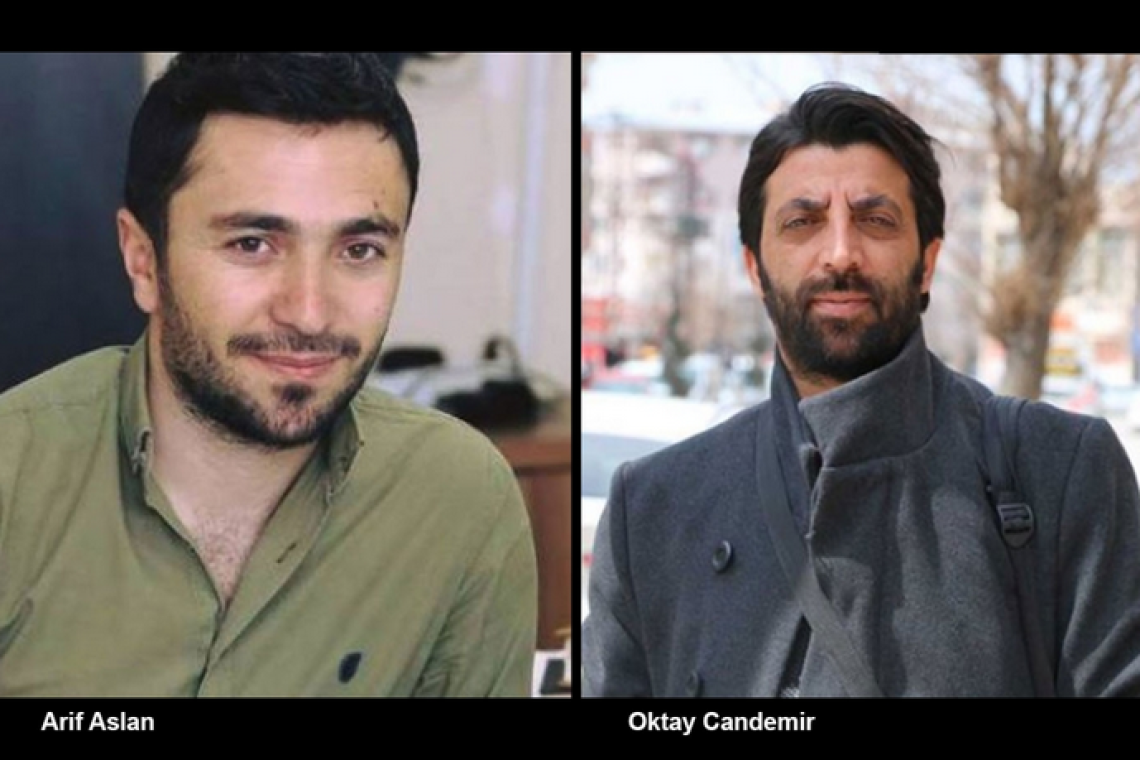Detained journalists speak out: Our technical equipment and archives seized
NİMET ÖLMEZ
VAN - Journalists Oktay Candemir and Arif Aslan, who were detained for their work and affiliations with certain media outlets, and for receiving royalties deemed criminal, revealed that during their detention, all their technical equipment and archives were seized, preventing them from reporting.
In Van, on Feb. 27, journalists Lokman Gezgin, Oktay Candemir, and Arif Aslan were detained during a house raid. After four days in custody, they were released by the prosecutor's office, although they faced accusations of "financing a terrorist organization." Candemir and Aslan emphasized that they were detained without concrete evidence.
Candemir: Five detentions in five years
Candemir, a journalist in Van for many years who was detained five times in the past five years, said, "In the last five years, I must have given statements at the police station maybe 50 times. When they knocked on my door during the last detention and said I had a statement to give, I reminded them that I would have come if summoned. From the moment I was detained, I asked the reason, but they just put me in an armored vehicle without explanation. First to the hospital, then to the police station. I think there are two reasons for this; the upcoming local elections and to intimidate all journalists in this city, coercing them to align with AKP policies."
"Our news royalties were considered a crime," Candemir continued, noting that neither he nor his lawyers had seen the MASAK report alleged in the investigation. "During detention, they questioned financial transactions with my lawyer, money sent to my brother. They framed these sorts of questions as the subject of the investigation. My home computers and phones were seized. My digital materials were taken. They connected us with an unrelated accusation, proving we had no involvement. My phone, computer, and camera's memory card were seized. These detentions are part of a long-standing policy; the government always tries to shape the free and opposition media. Since the early 90s with unsolved murders, and since the 2000s, they've tried to exert pressure through detentions."
Aslan: My archive was seized
Arif Aslan talked about his work since 2018 as a correspondent for Voice of America (VOA) and producing fixer content for numerous foreign press organizations, including BBC’s English, Persian, and Turkish services. He mentioned that he had prepared news reports in exchange for royalties for various European media outlets in 2017, which became the subject of the investigation. "The accusation of financing an organization is indeed a serious allegation. I want to explain very simply, without naming any institution, to avoid confusion for your readers; In 2017, I did many reports on political, cultural, and ecological topics for a news agency in Europe. I was paid into my personal bank account. Since the account name was in German, we didn't pay much attention. Ultimately, there was nothing in my reports that could be legally considered a crime," Aslan said.
Aslan highlighted that their houses were raided in the morning, and their computers, phones, and archives were seized. "They questioned all my financial transfers. These were transactions to my siblings, relatives, journalist friends, and purchases made via IBAN. We were released before even being referred to the court because the file was indeed empty. If we were summoned for a statement, we would have gone and given it. I cannot work now as my materials were seized."
Aslan: Pressures linked to my Kurdish identity
Aslan explained how these types of detentions render journalists in the field unable to work, pointing out that sources they try to report on can easily find accusations like "propaganda for an organization," "membership in an organization," or "financing an organization" against them with a simple Google search. "Even though I have been acquitted in all cases, you become a potential criminal in that person's eyes. It becomes very difficult to get press releases, data, or information about a news item from official institutions. When we travel outside the province, even if no crime appears during a GBT (General Information Gathering) check, the police can find these allegations against us in a Google search and do everything they can to follow and prevent us from working until we leave the city. Let me point out that as a Kurdish journalist, my working conditions are getting increasingly difficult. I believe this is solely due to my identity," he said.



